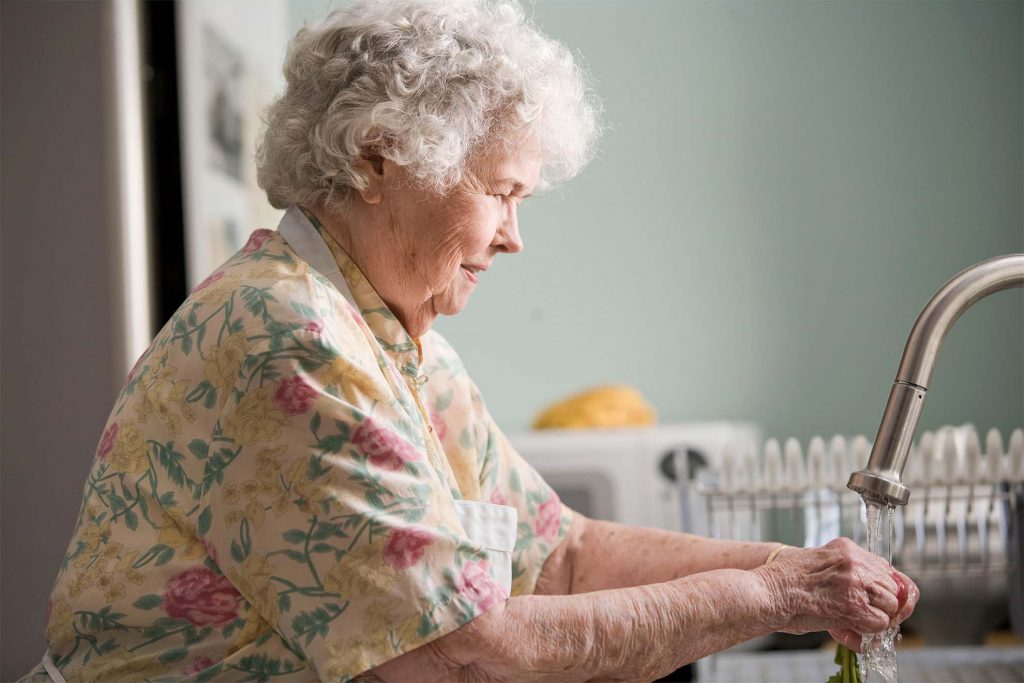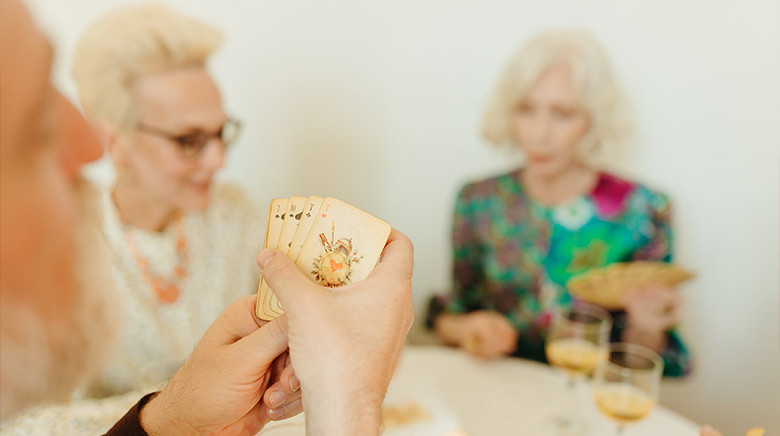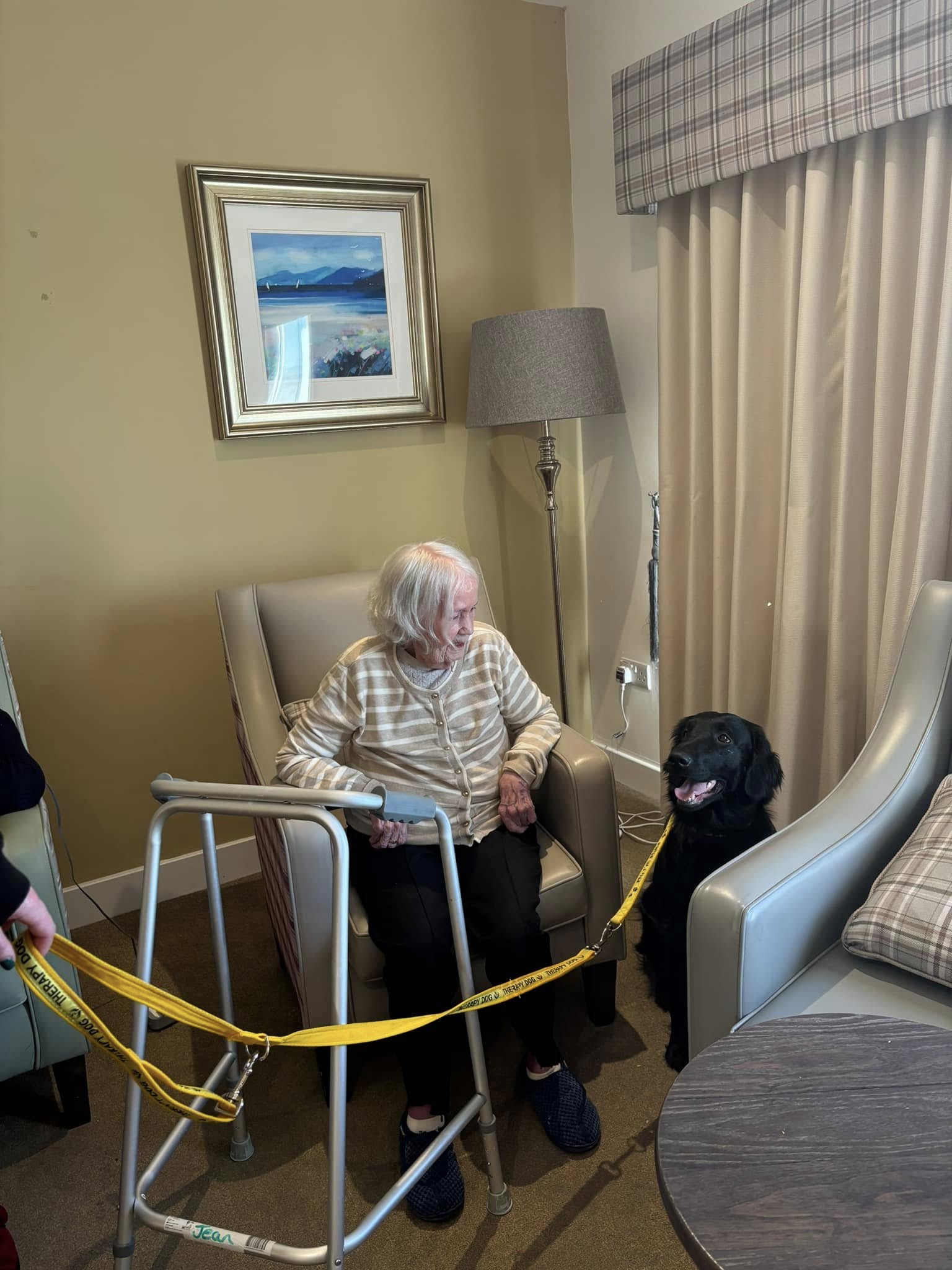What Does Dementia Care In A Care Home Look Like?

What is a Dementia Care Home?
A report published by the London School of Economics found that there are around 900,000 people living with dementia in the UK which is expected to rise in 2040 to 1.6 million. Therefore more and more people will be looking to move into a care home that offers personal care for dementia residents to be looked after in a safe, secure and familiar environment surrounded by a team of experts who specialise in dementia.
A person living with dementia usually has a variety of symptoms that can affect them from doing certain activities or prevent them from being able to live independently.
As their symptoms progress over time, it is essential that older people with dementia receive the best, more appropriate care from qualified nurses. Most care homes will hold meetings with current and new residents and their family members to outline their needs, requirements, likes and dislikes to build a daily lifestyle with a routine suited to them.
Coming to terms with someone you love experience signs of dementia and possibly needing to move them into a care home can be extremely difficult. However, it’s important that a medical expert diagnosis someone’s condition to ensure the next steps taken are appropriate.
If the person with dementia has more advanced symptoms, their loved one will become their power of attorney, legally allowing them to give written authorisation of their best interests on another’s behalf due to limited mental capacity, meaning their unable to make their own decision.



What Makes a Care Home Dementia-Friendly?
There are multiple ways that care homes can adapt their layout to be more resident-friendly towards those living with dementia, ensuring to create familiar environments for everyone. When writing up personalised care plans for our residents and their loved ones, we make sure to make a note of those with dementia to make sure they receive the best room tailored to their needs. Here are some things you could include within your dementia care home rooms:
1. Contrasting Colours in Rooms
You’d be surprised at how so many things in a room could cause unnecessary distress and confusion for those living with dementia, due to a change in perception and one of those being colour schemes. For example, a rug in the middle of the room can seem like a hole in the floor, therefore it is highly important that these obstacles are eliminated. If floors, dementia friendly furnishings and walls are of a similar colour, they can seem like they’re blending into something. Bold patterns should also be kept to a minimum as residents can interpret them as something jumping out at them.
2. Themed Corridors
Themed corridors are becoming increasingly popular within care homes, these consist of photographs of actors, singers or adverts from a certain era. Some also include more hands on activities with easy access, such as writing letters and posting them in the homes postbox, setting up a fake gardening area with faux plants to encourage more thinking points. These areas provide the residents with the opportunity to start conversations, whether it’s in the moment or reflecting back about a time in their life that they can remember, as residents can often remanence about their younger days.
3. Memory Boxes
Memory boxes are used in many care homes to store photos of family and friends, or objects that are significant to the individual. These boxes are placed next to their bedroom door to remind them that it’s their room. Any personal belongings can also be placed around the room to ensure residents feel content and comforted if they are feeling lost.
4. Proper Signage
Signs above doors with photos can also help a resident living with dementia find their way around the care home. Some residents will associate better with a photo rather than words and vice versa, so it’s ideal to have both.
5. Specialist Lighting & Secure Doors
Have you ever heard of ‘Sundowning’? It’s something residents living with dementia can experience, it’s when the sun goes down and their agitation can increase, which is why specialist lighting within the bedrooms and ensures can help an individual find their way at night if needed. Likewise, secure doors and security is important for those living with dementia, ensuring you can feel rest assured your loved one will be safe.
6. An Outside Space
As we all know, regular fresh air and vitamin D is essential for everyone’s wellbeing. No matter how much space a care home may have, a sensory garden or landscaped garden is essential. With outdoor spaces designed for enhancing senses, it can really benefit someone with dementia to utilise them as well as making it an opportunity to get involved with other gardening activities.
7. Friendly Activities for Dementia Care
Many care homes offer activities for all abilities, it helps in more ways than one, especially with someone's memory loss. Something as simple as allowing someone to make their own lunch encourages a resident to feel a sense of normality, it’s something they would have usually done in their own home, within their normal daily life. Singing, dancing and generally music as a whole can be used as a form of therapy as well as reliving memories from a particular time in their lives. Drawing, colouring and painting are also calming and creative activities that can also be enjoyed by everyone, no matter their ability. Activities that can use their cognitive thinking such as reading, board games and puzzles are a great way to help someone living with dementia.
8. Consistent Familiar Faces
As a residents symptoms progress, the level of care required increases, therefore, it’s important to provide them with as much familiarity as possible. Having designated specially trained staff member for each individual who receives dementia care can not only help them feel more comfortable and content, due to them forming a bond with their carer, but it also avoids any extra or further confusion.
9. Open Door Policy
Residents with dementia should not only spend time with other residents, but it’s also important for them to spend time with their friends and family; they’re nearest and dearest. This not only improves their mental health and wellbeing, its helps their day to day communication and acts as a sanctuary for both dementia residents and their family members. Providing them with the opportunity to come in with any questions they may have, ensuring we provide them with a peace of mind.



Dementia Care at Kingsacre Care Home
Kingsacre is a purpose built care home, situated with beautiful views of the Campsie Hills near the historic town of Clydebank. Our care is extremely proud to offer up to 66 residents with the highest standards of person centred care through Dementia Care, Nursing Care, Residential Care, Palliative Care and Respite Care for older people. Alongside our 24 hour care, we work closely to support people and the residents of our wonderful care home can benefit from a wide range of all inclusive facilities, such as our en-suite accommodation, daily activities programme, dining rooms, quiet and communal lounges, a cinema room and more, all within easy reach from one another, creating homely environments.
What makes us stand out from other care homes, is that here at Kingsacre, our highly skilled team ensure we create a vibrant community with all residents; they love spending time with one another, to build relationships and friendships. No matter our residents care requirements, evolving or not, their living arrangements remain consistent, ensuring all residents feel comforted and content, meaning we reduce confusion further. With our emphasis on diverse community living, our care home provides a soothing environment, particularly those who have dementia. Kingsacre Care Home is a peaceful and respectful care home, in an uplifting atmosphere with necessary care provided even at the later stages of someones life.
Contact our team today to find out how our dementia care home can help you or a loved on live a varied and fulfilling life at our warm and welcoming care home.





